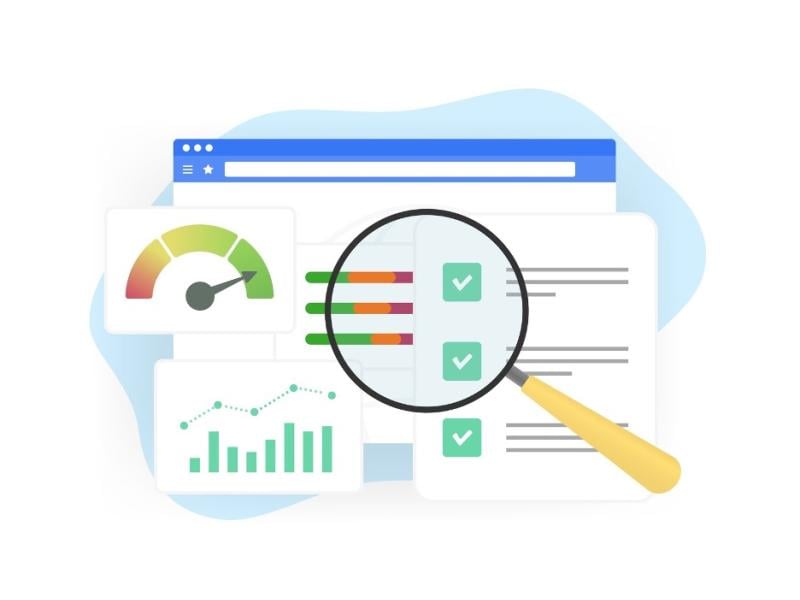As innovative new digital avenues emerge to enhance B2B operations, they come with their own set of challenges. Unleashed Technologies’ partnership with Commerce Weavers is a match made in heaven, providing our customers with effective solutions to B2B eCommerce challenges. Our combined expertise delivers comprehensive development offerings that drive success in a competitive online marketplace.
Commerce Weavers is a Polish agency that specializes in Sylius and Symfony technologies and focuses on B2B eCommerce. With founding expertise in these open-source frameworks, Commerce Weavers are ex-Sylius Core Team Members with 10 years of experience. Our partnership brings Sylius and Symfony technologies to the North American market and aims to help businesses, especially in the B2B eCommerce space, take advantage of the flexibility and customization these frameworks offer.
In this guide, we explore B2B eCommerce challenges and how these platforms streamline and simplify the complexities of digital sales, including a specific case study where Unleashed in partnership with Commerce Weavers significantly eased B2B transactions for environmentally-friendly chemical treatments for condensers and coolers. We also look at important considerations for B2B companies to future-proof their digital endeavors and stand out in a competitive landscape.
B2B eCommerce: An Overview
B2B eCommerce refers to the online transactions and interactions between businesses, rather than between a business and individual consumers (B2C), such as:
- A business selling products or services to other businesses.
- Businesses procuring supplies, raw materials, or other inputs from other businesses.
- Businesses collaborating on projects or sharing information digitally.

There are several key differences between B2B and B2C eCommerce.
For instance:
- Buyer Personas: B2B buyers are typically professional purchasers, while B2C buyers are individual consumers.
- Purchase Drivers: B2B purchases are often driven by business needs and return on investment (ROI), while B2C purchases are more emotion-driven.
- Sales Cycle: B2B sales cycles tend to be longer and more complex, with more stakeholders involved.
- Pricing: B2B pricing is often negotiated, while B2C pricing is more standardized.
- Purchasing Process: B2B purchases often require approvals, contracts, and other formalities, while B2C is more straightforward.
Common B2B eCommerce Challenges
Some common B2B eCommerce challenges and pain points include:
Complex Buying Processes
The B2B buying process often involves multiple stakeholders, approval workflows, and detailed specifications. This makes it more complicated than a typical B2C transaction.
Lack of Personalization
B2B buyers expect the same level of personalization they experience in their personal shopping capacity. However, many B2B eCommerce sites struggle to deliver this level of personalization to their customers.
Outdated Technology
Many B2B companies still use legacy systems and processes that aren’t well-suited for modern eCommerce, especially for business-to-business transactions.
Difficulty Integrating Systems
Integrating eCommerce platforms with existing enterprise resource planning (ERP) software, customer relationship management (CRM) tools, and other business systems can be technically challenging and resource intensive.
Pricing and Quoting Complexity
Negotiated pricing, volume discounts, and other B2B-specific pricing models are difficult to manage and display effectively online.
Poor User Interface (UI) and User Experience (UX)
Many B2B eCommerce sites have outdated, clunky interfaces that are difficult for buyers to navigate. A smooth, intuitive buying experience is crucial to foster customer engagement and drive sales.
Lack of Product Configurators
B2B buyers must often customize or configure products to their specific needs. Without robust configurator tools, the buying process becomes cumbersome.
It’s essential to address these B2B eCommerce challenges through improved UI and UX, better configurator tools, and streamlined integration. By doing so, you can deliver a more compelling and effective eCommerce experience for your customers.
Sylius in B2B eCommerce
Sylius is an open-source, headless eCommerce framework built on the Symfony PHP framework. It’s designed to be highly flexible and customizable, so developers can build complex, feature-rich eCommerce solutions.
Unlike many all-in-one eCommerce platforms, Sylius takes a modular approach. It provides a core set of eCommerce functionality that can be extended and customized through a wide range of plugins and integrations. This enables businesses to create a unique, branded eCommerce experience without the constraints of a one-size-fits-all platform.

Sylius Advantages in Custom B2B Solutions
Sylius, through its premium suite Sylius Plus, includes B2B-specific features, such as advanced pricing configuration, organization management, and quick shopping. It also offers easy external system integration, powerful order management, and customer groups. This makes it an especially strong choice for B2B eCommerce. Other advantages of Sylius in custom B2B eCommerce solutions include:
1. Flexibility and Customization
Sylius is highly customizable, so developers can extend and modify core functionality to meet specific business demands. It’s well-suited for complex, enterprise-level eCommerce needs and smaller businesses that require a high level of specialized features.
2. Headless Architecture
Sylius is built on a headless architecture, which separates the front-end presentation layer from the back-end functionality. This lets businesses create custom, omnichannel shopping experiences across web, mobile, and other touchpoints. Developers can also change or improve certain features or functions without affecting the entire system. This “single responsibility principle,” where each feature or function is responsible for itself, makes it easier to test and maintain.
3. Open-Source and Community-Driven
As an open-source platform, Sylius benefits from a large and active developer community that contributes to its ongoing development and maintenance. This can provide more control and cost-effectiveness than proprietary platforms.
4. Performance and Scalability
Sylius is built on the Symfony framework, which is known for its performance and scalability. So, it’s well-suited for high-traffic sites and can reduce eCommerce challenges.
Putting these Sylius strengths into practice, Unleashed recently partnered with Commerce Weavers to modernize a client’s ability to sell specialty chemicals for use in industrial condensers and coolant equipment. As the product of a joint venture effort, the water treatment product is highly specialized and hence required significant customization in product and SKU identification along with the transaction process. The underlying code for the eCommerce platform is open-source, but had not been maintained and updated for years -- a reminder that open-source code, like any development code, needs to be constantly monitored, maintained, and upgraded. And fortunately, the Sylius open-source developer community provides the necessary plug-ins for continued security protection and frequent code integrity updates.
Here, Unleashed worked to modernize the Sylius code and build new capabilities, including integrating with Avalara tax software to facilitate all-in pricing and ease the purchasing transaction experience for the client’s distributors. The new & improved B2B eCommerce platform enables industrial buyers of complex & expensive condenser/coolant chemicals to benefit from a more streamlined, simpler, & faster sales experience.
B2B eCommerce Trends
As companies continue to embrace digital transformation, several key trends are shaping the evolving B2B eCommerce landscape. To remain relevant and competitive, it’s critical to stay on top of the following trends.
Configurators
Allowing buyers to customize products to their exact needs is a powerful B2B eCommerce capability. Advanced configurators enable customers to specify options, view pricing, and place orders for tailored items.
Self-Service Portals
B2B buyers want the ability to research, configure, and order products without relying on sales reps and local office hours. Self-service portals give customers 24/7 access to account information, order history, and other key data -- providing new levels of personalization and customization to B2B buyers.
Automation
Automating repetitive tasks, such as order processing, inventory management, and customer communication, helps B2B companies scale their eCommerce operations. They can also deliver faster, more consistent service.
Virtual and Augmented Reality
Emerging virtual and augmented reality technologies let B2B buyers visualize and interact with products in 3D. This enhances the online shopping experience and reduces the need for in-person demonstrations.
Omnichannel Strategies
B2B companies are adopting omnichannel approaches that seamlessly integrate eCommerce, mobile, and traditional sales channels. As a result, they can provide a consistent, personalized customer journey across all touchpoints.

Mobile Commerce
As more B2B buyers conduct research and place orders on the go, mobile-optimized eCommerce experiences are becoming essential. Responsive design and mobile-friendly features drive increased engagement and conversions.
ERP Integration
Integrating eCommerce platforms with ERP systems enables real-time inventory visibility, automated order processing, and other operational efficiencies that are critical for B2B sellers.
Complex Search
B2B buyers expect to quickly find detailed product information, specifications, and customization options. Robust search and filtering capabilities are crucial to help customers find what they need.
What’s more, artificial intelligence (AI)–powered search functions enhance search capabilities. Users can search for products by uploading images and receive personalized recommendations based on the visual content. For instance, a buyer can take a screenshot of a product they saw on a competitor site and find a similar one in your product range.
The Role of AI in eCommerce
AI can solve B2B eCommerce challenges and enhance both performance and customer experiences. It can transform B2B eCommerce in the following ways:
Conversational Commerce
Through natural language processing (NLP), chatbots and virtual assistants enable B2B customers to get their questions answered and complete transactions 24/7 through natural, conversational interactions. This boosts convenience and responsiveness.
Predictive Analytics
AI can analyze customer data to predict future buying behavior, optimize pricing and inventory, and make personalized product recommendations. This can improve average order values and boost customer loyalty.
Automation
AI can automate a wide range of eCommerce tasks, from demand forecasting and inventory management to customer service and marketing personalization. Automation reduces red tape and process bloat, increases operational efficiency and frees up staff to focus on higher-value activities.
As B2B buyers’ expectations continue to rise, AI will be essential to deliver the seamless, data-driven experiences that set you apart from the competition.
Custom vs Off-the-Shelf B2B eCommerce Solutions
When deciding between a custom-built or predesigned eCommerce platform, there are several factors to consider. The best approach will depend on your unique goals and specific functionality needs.
Off-the-Shelf Solutions
Off-the-shelf eCommerce solutions are pre-built software solutions that are ready to use with some minor customizations. Since the core architecture and functionality have already been developed, these applications are faster to set up and launch than a custom-built solution.
Instead of paying developer costs, you generally only pay a licensing or monthly subscription fee. Keep in mind that you may incur developer fees if you wish to hire a professional to assist with technical customizations beyond your capabilities.
Off-the-shelf platforms often have a large ecosystem of third-party integrations and add-ons available. This offers a great variety of features, but they may come at an extra cost. The vendor handles maintenance, bug fixes, and feature updates for the application, taking this responsibility off your hands.

However, off-the-shelf applications have some potential drawbacks. For instance, you’re dependent on the vendor’s product roadmap and have less control over future developments. You also have little control over the user experience. What’s more, the platform may not fully meet your specific needs or workflows. While there are some options for customization, these are often limited.
Although out-of-the-box platforms let you scale your operations, there may be a ceiling in terms of what the platform can handle. In addition, platform fees generally increase significantly for large businesses and enterprise-level operations.
Custom eCommerce Solutions
Custom eCommerce solutions are built from scratch to meet your unique needs and address specific B2B eCommerce challenges. This means you can design a custom app to perfectly fit your company’s unique workflows, processes, goals, and future growth needs.
Custom software can also help you differentiate your business and gain a competitive edge with unique features and designs. You have full control over the application’s roadmap, so you can make changes as needed and design the UX exactly as desired. In addition, custom applications are easier to scale up or down as your needs change.
Custom eCommerce software does, however, require a significant initial investment for the development phase. The development process can also take much longer than implementing a preconfigured solution.
For many small businesses, a predesigned solution can provide the best balance of cost, functionality, and time-to-market. Enterprises with highly specialized needs or high-volume transactions may benefit more from a custom platform. Carefully evaluate your budget, technical capabilities, and business demands to select the right eCommerce foundation. Also, consider potential business growth and changes to ensure your solution is future-proof.
Impact of eCommerce on Underserved Communities
Like Unleashed Technologies, Commerce Weavers aims to make an impact in communities through its tech services. For instance, B2B eCommerce can optimize unseen processes like supply chains and deliveries. It allows smallholder farmers to access more markets to sell their produce, increasing their sales and opportunities for expansion. It also cuts out the “middleman” that small farmers often have to sell to, so they can get better prices. They can then deliver their produce to consumers more quickly to reduce food waste.
Commerce Weavers supports a digital marketplace for a farmers’ cooperative in Germany, which lets farmers easily order supplies and trade with each other digitally. Small, local farmers can connect with and sell directly to consumers in their communities to foster a sense of partnership and collaboration. In addition, it enables the creation of B2B eCommerce marketplaces that connect farmers directly with equipment and product suppliers and buyers. This optimizes supply chains and processes that were previously manual, inefficient, and location-dependent.
These initiatives help small farmers and producers reduce the overall costs of operations and distribution. As a result, their products become more affordable, and profits become more sustainable.
Partnering for B2B eCommerce Success
As the B2B landscape evolves, companies must address eCommerce challenges around complex buying processes, a lack of personalization, outdated technology, and poor user experiences. Platforms such as Sylius offer the flexibility and customization to build tailored B2B eCommerce solutions that meet these unique needs.
Whether choosing a custom-built or off-the-shelf platform, B2B companies should carefully evaluate their requirements, budget, and long-term scalability needs. Unleashed Technologies can help you choose the best path forward to boost your success. As a thought leader in B2B eCommerce and digital transformation, we provide digital strategy, custom software, and eCommerce website development services.
By partnering with Commerce Weavers, we can help you address key eCommerce challenges and use the power of Sylius and Symfony to build a truly customized, high-performing B2B eCommerce solution that stands out from the crowd. Unlock the full potential of digital commerce for your B2B organization. Let’s chat.


